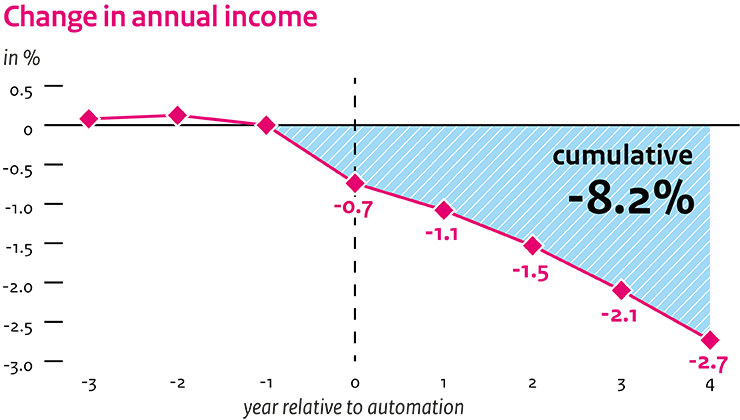Publications
February 14, 2019
Automatic Reaction – What Happens to Workers at Firms that Automate?

July 6, 2017
A lost generation? The early career effects of graduating during a recession
We estimate the effect of graduating during a recession on the early careers of high educated graduates in the Netherlands between 1996 and 2012. Exploiting field-specifi c differences in un-employment rates, we fi nd that graduates on average suffer a 2.3% lower wage in a typical recession in their first year. →
